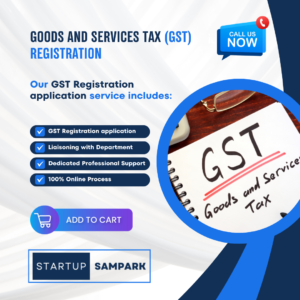Setting Up Accounting and Bookkeeping
Setting up accounting and bookkeeping for a business in India is essential for maintaining financial health, ensuring compliance with regulations, and supporting informed decision-making. Here’s a detailed guide to help you establish a robust accounting and bookkeeping system.
The first step is to choose the right accounting method. Businesses in India generally use either the cash basis or accrual basis of accounting. The cash basis records transactions when cash changes hands, while the accrual basis records transactions when they occur, regardless of cash flow. The accrual basis is often preferred for its accuracy and is mandatory for larger businesses.
Next, select an appropriate accounting system or software. There are numerous accounting software options available, ranging from simple tools like Tally and QuickBooks to more advanced systems like Zoho Books and SAP. Choose software that fits your business size and needs, considering factors such as ease of use, features, cost, and scalability. Many software options offer features tailored to Indian accounting standards, including GST compliance and TDS calculations.
Once you’ve selected your software, set up your chart of accounts. This is a detailed list of all accounts used in your accounting system, categorized into assets, liabilities, equity, revenue, and expenses. A well-organized chart of accounts ensures that your financial transactions are categorized correctly, facilitating accurate reporting and analysis.
You will need to maintain accurate and up-to-date records of all financial transactions. This includes invoices, receipts, bank statements, and other documentation related to income and expenses. Implement a system for organizing and storing these records, whether digitally or physically, to ensure they are easily accessible when needed.
It’s also essential to understand and comply with tax regulations. In India, businesses must adhere to GST requirements, including issuing GST-compliant invoices, maintaining records of input and output tax, and filing regular GST returns. Familiarize yourself with the GST rules and deadlines to avoid penalties and ensure proper tax reporting.
Consider hiring a professional accountant or bookkeeper, especially if your business is complex or if you lack the expertise to manage accounts effectively. An experienced accountant can help with tasks such as financial reporting, tax filing, and compliance with accounting standards. They can also provide valuable insights into financial planning and analysis.
Regularly reconcile your accounts to ensure accuracy. Reconciliation involves comparing your internal records with bank statements and other external documents to identify and correct discrepancies. This process helps maintain accurate financial records and detect potential issues early.
Establish a routine for reviewing and updating financial records. Regularly review your financial statements, including balance sheets, income statements, and cash flow statements, to monitor your business’s financial health. This helps in identifying trends, managing cash flow, and making informed decisions.
Ensure that your accounting system integrates with other business processes, such as inventory management and payroll. Integration streamlines operations, reduces manual data entry, and ensures consistency across different areas of your business.
Stay updated on changes in accounting standards and regulations. The Indian accounting environment is subject to periodic updates, including changes in GST rules, income tax laws, and accounting standards. Keeping abreast of these changes helps ensure compliance and avoid potential issues.
In summary, setting up accounting and bookkeeping for a business in India involves choosing the right accounting method and software, maintaining accurate records, complying with tax regulations, and potentially hiring professional help. By implementing these practices, you can effectively manage your business finances, ensure compliance, and support long-term success.
startup india
-
 MSME Registration₹1,180.00
MSME Registration₹1,180.00 -
 GST Registration₹2,360.00
GST Registration₹2,360.00 -
 Trademark Registration₹7,450.00
Trademark Registration₹7,450.00

















Post Comment